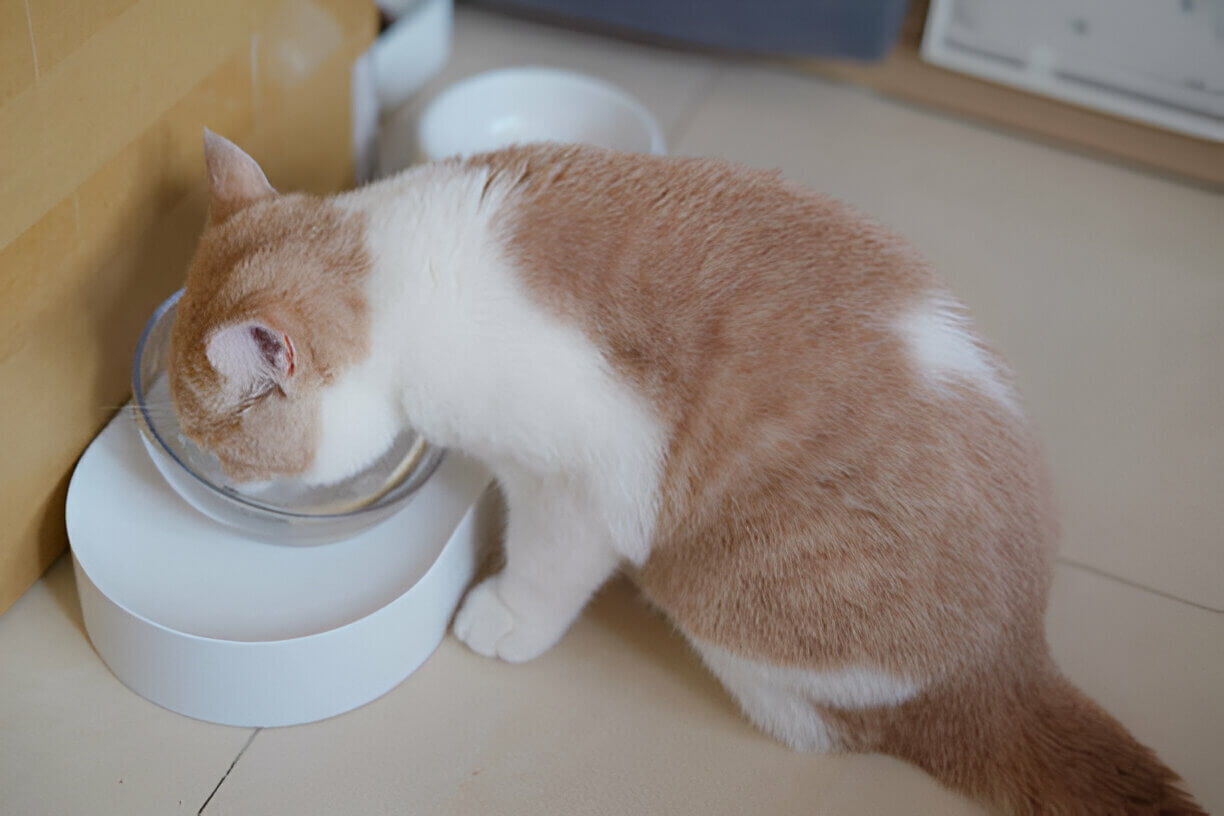Leaving your cat alone with an automatic feeder can be convenient, but it’s essential to consider various factors to ensure your feline friend’s well-being. This guide delves into how long you can safely leave your cat alone, the role of automatic feeders, and additional measures to take for your cat’s comfort and safety.

Understanding Automatic Pet Feeders
Automatic pet feeders dispense food at scheduled times, helping maintain a regular feeding routine for your cat. They come in various types, including gravity feeders, programmable feeders, and smart feeders with Wi-Fi connectivity. The type you choose can affect how long you can leave your cat alone.
Factors to Consider
Age and Health
The age and health of your cat are crucial in determining how long you can leave them alone. Kittens and senior cats need more frequent care and monitoring. Kittens are energetic and curious, which can lead them into potentially dangerous situations. Older cats might have specific health needs, such as medications or dietary requirements, that require more frequent attention. Cats with chronic health issues or special dietary needs require careful planning to ensure their health and safety while you’re away.
Feeder Reliability
The reliability of the automatic feeder is paramount. A high-quality feeder should dispense the right amount of food consistently. It’s advisable to test the feeder for a few days while you’re still home to ensure it functions correctly. Consider feeders with backup power sources like batteries to prevent disruptions during power outages. Before leaving your cat alone, ensure the feeder can handle the type of food you use, whether it’s dry or wet.
Feeder Capacity
The feeder’s capacity is essential in determining how long you can leave your cat alone. Larger capacity feeders are suitable for longer periods, ensuring a steady supply of food. However, maintaining food freshness, especially for wet food, is critical.
Dry food is typically more suitable for longer absences due to its longer shelf life. Ensure the feeder you choose can store enough food for the duration of your absence and keep it fresh.
Duration of Your Absence
Short Absences (1-2 Days)
For short absences, such as a day or two, a reliable automatic feeder and water source can suffice. Ensure the feeder is full, and multiple water sources are available. Clean the litter box before you leave and consider setting up extra boxes to maintain cleanliness. Ensure that your cat has access to their favorite resting spots and toys to keep them comfortable and entertained.
Medium Absences (3-5 Days)
For medium-length absences, it’s crucial to add extra measures. Apart from the automatic feeder, consider arranging for someone to check in on your cat every day. This person can refill food and water, clean the litter box, and provide some companionship.
Having someone visit also allows them to check for any signs of distress or health issues, ensuring your cat’s well-being.
Long Absences (More than 5 Days)
Leaving a cat alone for more than five days with just an automatic feeder is not recommended. Cats need human interaction and monitoring. For extended absences, consider hiring a pet sitter or boarding your cat at a reputable facility.
These options provide regular care and attention, ensuring your cat’s health and happiness. A pet sitter can also administer any necessary medications and monitor your cat’s behavior for any signs of illness or stress.
Additional Care Considerations
Water Supply
Ensuring a continuous supply of fresh water is vital when leaving a cat alone. Automatic water fountains are a good solution, offering a constant flow of clean water. Regularly clean these fountains to prevent bacteria buildup. Providing multiple water sources around the house can also ensure that your cat stays hydrated.
Litter Box Maintenance
Cats need a clean litter box to avoid stress and behavioral issues. If you plan to be away, consider multiple litter boxes or a self-cleaning litter box. Regular maintenance and familiarization with new types are essential before leaving your cat alone. Ensuring your cat has clean litter boxes will help maintain their comfort and reduce the likelihood of accidents.
Mental Stimulation
Cats require mental stimulation to avoid boredom and anxiety. Provide interactive toys, puzzle feeders, and window perches for bird watching. These activities keep your cat engaged and reduce stress. Setting up a comfortable and stimulating environment with plenty of activities can help your cat feel more at ease while you’re away.
Environmental Enrichment
Ensure your cat has a comfortable and stimulating environment. Leave some of their favorite toys and create cozy spots for napping. Setting up a bird-watching station can also provide entertainment. Keeping familiar items around can help your cat feel secure and reduce anxiety in your absence.
Choosing the Right Automatic Feeder
Portion Control
Choose a feeder that allows precise portion control to match your cat’s dietary needs. This helps prevent overeating or underfeeding. Ensuring your cat receives the correct amount of food is crucial for their health, especially during extended periods of absence.
Schedule Flexibility
A feeder with flexible scheduling options can cater to your cat’s routine. This is particularly useful for cats with specific feeding times. Being able to set multiple feedings throughout the day can help mimic your regular feeding schedule and provide consistency for your cat.
Food Compatibility
Ensure the feeder is compatible with your cat’s preferred food type, whether it’s dry or wet. Some feeders have separate compartments for different types of food. Choosing a feeder that can handle your cat’s diet will ensure they receive the right nutrition even when you’re not home.
Additional Features
Features like Wi-Fi connectivity, voice recording, and battery backup can enhance convenience and ensure continuous operation even during power outages. Some feeders also offer real-time monitoring, allowing you to check on your cat’s feeding habits remotely and make adjustments as needed.
Ensuring Your Cat’s Well-being
Companionship
Cats are social animals and need interaction. If you plan to be away for more than a day or two, having someone check on your cat provides essential companionship and monitoring. Regular human interaction helps reduce stress and prevents feelings of loneliness.
Surveillance
Consider using pet cameras to check in on your cat remotely. Some cameras offer treat-dispensing and two-way audio, allowing you to interact with your cat even when you’re not home. Monitoring your cat’s behavior and environment can give you peace of mind and ensure their safety.
Conclusion
While automatic feeders offer convenience and help maintain a regular feeding schedule, they should not replace human interaction and care. For short absences, they can be a reliable solution, but longer absences require additional measures such as pet sitters or boarding.
By considering your cat’s specific needs and taking appropriate precautions, you can ensure their well-being and peace of mind while you’re away.




